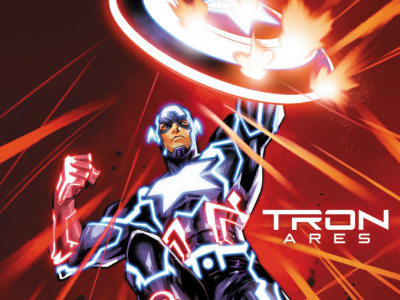In today's Marvel press conference, Marvel President Bill Jemas took the blame for the impression '...that it often does look like we are out to get comic shops -- a lot of that is my personal failure to provide complete information about the policies... I know that I have a reputation for being anti-comic shop, but on a policy basis, the reality is, 'Don't worry about what I say, worry about what I do.' If you look at what Marvel does, it really does things to help the comic shops.' Jemas defended his no overprint policy as a successful attempt to restore collectibility to the Marvel line, and he bristled at the notion that comics aren't (or shouldn't be) collectible. 'You may want to believe that number one issues sell 30-50% more because people want to test the book,' he said, 'but then you must also believe that for the last 50 years every number two issue has been worse than issue number one, or you can just believe that there are a significant number of collectors out there in the business. That's why I say things like 'IQ test' [see 'Jemas: Marvel's No Overprint Policy is an IQ Test For Retailers'], because if you really believe that comic books are not collectible, and that there are not a significant number of collectors out there, then you spend the rest of your day explaining away the simple phenomenon of number one and number two books.'
Jemas explained that to ensure the collectibility of its new Ultimate line, Marvel did not send Ultimate Spider-Man #1 to the newsstands. This was, he pointed out, a tough decision that favored the comic market. Instead of allowing them to sell Ultimate Spider-Man #1, Marvel came up with the intrinsically less collectible Ultimate Magazine for the newsstand (see 'Ultimate Magazine Newsstand Only'), and was roundly criticized by comic retailers for not offering the Ultimate Magazine to comic shops. Despite complaints from comic retailers, Jemas didn't emphasize the withholding of the Ultimate Spider-Man #1 from the newsstand at the time because he didn't want to upset the newsstand distributors.
Jemas also claimed that Marvel was helping comic retailers by keeping a larger number of bestselling comics at a low $2.25 price point. Marvel has fourteen titles in the Top 50 at $2.25, far more than any other publisher.
Bookstores
Jemas minced no words when talking about the increasing importance of mainstream bookstores to Marvel's plans. 'We think that the best thing to use for a feeder system [for the comic market] is not the newsstand, increasingly we think bookstores are the feeder,' he said. 'Historically the point of entry into the business has been single issue comic books. When I was a kid, I had a bicycle, a dime, and there was a corner candy shop. That's not the paradigm any more, the paradigm is the car with mom and dad and the kids on the way to the mall with lots of money.' To ease the transition from bookstore to comic shop for those fans that want a more complete line, Marvel is repackaging its single issue comics into trades quickly so that a kid who picks up the latest Marvel trade is only a couple of issues away from being up to date with the single issue series.
Marvel's progress in selling to mainstream bookstores obviously pleased Jemas: 'Our bookstore business is exploding...(it) doubled in the first five months of this year compared with last.' At the beginning of the press conference both Jemas and Editor-in-chief Joe Quesada criticized the comic press for excessive negativity in the face of a 'substantial turnaround in the industry,' and Jemas brought the subject up again when he took exception to what he called a 'negative spin' in comic press reports about Marvel and Diamond's participation in the recently concluded Book Expo America (probably referring to an article written by Charles Brownstein, who worked the Image section of LPC's booth at the BEA, for Comicon's Splash page). Jemas noted that he personally met with the seven key buyers who represent the lion's share of bookstore sales.
Marvel's Financial Situation
When asked about Marvel's financial situation and the problems associated with its troubled Toy Biz division (see 'Marvel in Cash Flow Pain'), Jemas noted that Marvel's publishing division was now a moneymaker. In the past even with circulations much bigger than Marvel has today, the publishing operations lost money, but the company's financial troubles had forced him to make the tough decisions and turn Marvel into a lean, mean machine. 'No matter what happens to Toy Biz, no matter what potential bankruptcies there could be, the comics division makes money now -- so you go to bankruptcy, there is no economic reason that that would have a negative effect on publishing.' He called worrying about Toy Biz dragging Marvel under 'a red herring.' His point was that in a reorganization, a trustee's responsibility is to conserve assets and generate as much cash as possible to pay creditors. Since publishing is now profitable, it's likely that in such a situation, Marvel would continue to publish even if money-losing divisions of the company were shut down.
Talent Search
Editor-in-chief Joe Quesada outlined a fan-friendly plan to discover new artists and writers. Marvel will post a three-page scenario by Dan Jurgens on its website. Amateur artists will be invited to draw their own version of the script and bring it to Marvel at Wizard Con in Chicago or at the San Diego Comic Convention. The winner will get to pencil a 22-page story for a Thor comic to be published next year. Would-be writers will be asked to write a one-page synopsis for an 8-page back-up story, which will appear in the same issue of Thor.
(For other recent comments by Marvel's President, see 'ICv2 Q&A -- Bill Jemas')







